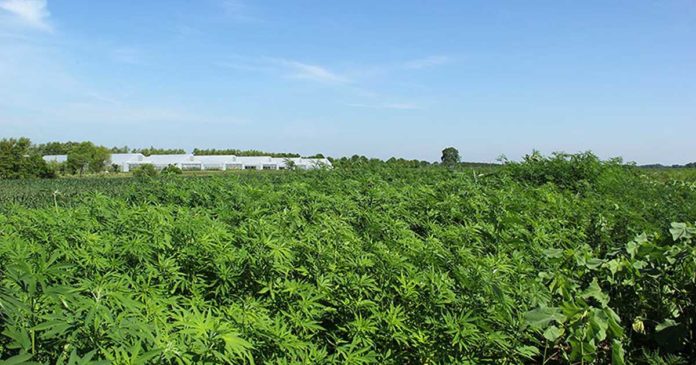A $1 million U.S. Department of Agriculture grant is supporting Purdue University research into organic hemp production.
Much knowledge has been lost in the USA between the start of prohibition decades ago and the recent hemp renaissance; particularly in relation to growing hemp without the use of pesticides, or the use of environmentally gentle pesticides.
While a hardy crop, there are a multitude of hemp pests; including aphids, gnats and borers that can reduce yield or kill plants.
The use of pesticide on hemp and cannabis generally is a thorny topic in the USA as at a federal level, there are no legal pesticides that growers can use (states may have their own rules). However, a submission lodged with the EPA by the National Industrial Hemp Council (NIHC) and American Farm Bureau Federation in September seeks to add hemp to the labeling of 10 currently registered pesticide products.
Even if that submission is successful, organically grown hemp will have its place; particularly among discerning consumers concerned about pesticide use in connection with something they wear, use or ingest.
In fact, with so much hemp hitting the market in the USA, an organic certification could give farmers a significant edge and enable them to enjoy a hefty price premium on their crops.
“There’s certainly tremendous interest and tremendous opportunities, but the reality is that this is a crop we haven’t grown on significant acreage for 70 to 80 years,” said Kevin Gibson, professor of botany and plant pathology at Indiana’s Purdue University, who is leading the project. “The knowledge base to be successful needs to be developed.”
The primary goal of Purdue’s project is to develop and communicate research-based information on soil health, pests, cropping systems, and markets to assist organic farmers make informed decisions about industrial hemp.
Field experiments will assess the integration of hemp into cropping systems, include cover crops and no till practices, and the effect of location and planting date on how various cultivars perform. The supply chain will also be examined and information gathered from the project disseminated to farmers through workshops, field days, and publications.
Apparently, the $1 million grant is the first from the USDA to support organic hemp production research.


